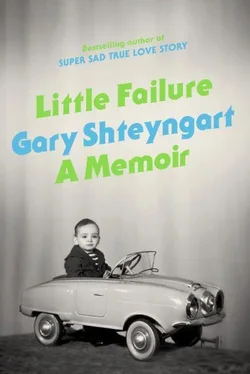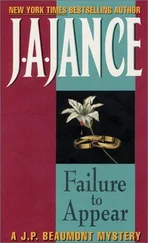My would-be bride and I are now living in a small but affordable duplex in the far West Village — her real estate acumen is without equal. My psychoanalysis is going well, even though a part of me misses the pain of being with a Pamela Sanders. Each day, out of habit, I bring up my cheek for my new girlfriend to slap, and each day she doesn’t slap it. “I just can’t seem to spoil you enough,” she tells me, as we lie in bed surrounded by an impromptu meal of Popeyes fried chicken, Doritos Cool Ranch — flavored tortilla chips, and non-diet Coke. It’s not true, what she said. I learn how to be a spoiled little bastard pretty quickly, but each time she tells me I can’t be spoiled, I block out some space in the bathroom to cry happily to myself.
And each day I make the trip to one of those Hudson Street media bodegas that feature a complete selection of the latest Albanian and Eritrean news sources. There, I scoop up the dozens of publications that are running advance and nearly all favorable(!) reviews of my first book. Places I’ve understood to exist only vaguely, Boulder, CO, and Milwaukee, WI, and Fort Worth, TX, harbor people who have not only read all 450 pages of my meandering manuscript but also approve of what I’m trying to say.
Which is what exactly? The Russian Debutante’s Handbook , about to sail into Barnes & Noble and destined to enjoy a slight commercial success, is if anything an unfaithful record of twenty-seven years of my life. It is filled with Nat Sherman cigarettes, guayabera shirts and janitor pants, words like “venal” and “aquiline,” cats named Kropotkin, dying beloved grandmothers, Eastern European castles brooding over urban hilltops, midwestern collegiate panic attacks, sedulous Jewish roommates from Pittsburgh, large female American backsides, cheerless Soviet cartoon crocodiles, eyebrow waxing, aged balsamic vinegar, and the age-old questions of whether it is better to be an alpha or a beta immigrant, and whether it’s okay to bring others into the world when you are not happy with who you are. It is a catalog of the styles and mores of a particular era as recorded by an outsider fast becoming an insider. It is a very long document in which a troubled young man talks to himself. It is a collection of increasingly desperate jokes. To this day, some people tell me it’s my best work, implying that it’s all been kind of a downhill slog from there. After finishing the book you hold in your hands, I went back and reread the three novels I’ve written, an exercise that left me shocked by the overlaps between fiction and reality I found on those pages, by how blithely I’ve used the facts of my own life, as if I’ve been having a fire sale all along — everything about me must go!
On so many occasions in my novels I have approached a certain truth only to turn away from it, only to point my finger and laugh at it and then scurry back to safety. In this book, I promised myself I would not point the finger. My laughter would be intermittent. There would be no safety.

With my first novel about to be born in the late spring of 2002, I feel my life shifting irrevocably; all those tectonic plates that once shuddered against each other are finally aligning to make a permanent surface upon which I can grow plants and herd cattle. It gets easier. But there’s something my analyst knows that I don’t: This burst of sheer joy will not last long. Already, the mechanisms at my disposal are working to revert myself back to the mean, to the unhappiness, to the drinking. A particularly cruel and personal review finally comes by way of the West Coast and that is the one I savor, the one I draw comfort from, the one I memorize. But this will not be my worst review by far.
The phone rings in my West Village duplex, with its childish triptych of cosmonaut Yuri Gagarin stretching along an entire wall, with its sense of a happy new couple trying out life together. Another terrific early review has just landed on my laptop, and tonight we are going to my favorite sushi restaurant, on Hudson Street, to celebrate. The day before, David Remnick, the editor of The New Yorker and my father’s future nemesis, had called me personally to ask if I could write an article on Russia for the venerable magazine.
I pick up the phone eager for whatever else the world can provide me.
It is my father’s voice. “ Mudak ,” he says. My mother’s howling takes up the rest of the conversation.
The Russian word mudak stems from the ancient term for “testicles,” and in a rural sense connotes a castrated piglet. In a modern sense it is perhaps closest to the American “dickhead.” In my father’s arsenal of words I know that it is the nuclear option, and that’s what it feels like when he says it: like being deposited in the middle of Threads or The Day After . Dead trees are whistling around me; a bottle of milk is melting on my doorstep. “ Attack warning red! ” “Is it for real?” “Attack warning is for bloody real!”
Mudak . Added to Snotty and Weakling and Little Failure, this may be the final word to grace the tombstone of our relationship. Because while the hurt is still thrumming in my ear— why can’t you be proud of me in my finest moment to date? — I am back on my psychoanalyst’s couch trying on the new words I’ve just taught myself.
I am not a bad son.
Through the howling coming at me from across the East River, I discern the source of my parents’ anger, the mudak- inciting pain. A Jewish newspaper has sent a reporter to meet my parents in their natural habitat and in her subsequent article has suggested that my parents somewhat resemble the hero’s parents in my novel.
“We don’t ever want to speak to you again,” my mother is shouting at me.
If you won’t speak to me, it is better not to live!
Those are the traditional expected words on my end. But what I say instead is: “ Nu, khorosho. Kak vam luchshe .” Well, that’s fine. Do as you please.
And that stops the howling. And that makes them backtrack, if not apologize. But it is too late. The razvod has been signed and notarized, not between my mother and my father but between them and me. I will continue to see them and love them and call them each Sunday night, as mandated by Russian law, but their opinions of me, the fanged hurt of their own childhoods, will not rend my world asunder, will not send me to the nearest bar, will not be unleashed upon the woman I share my bed with.

But then there’s also this. My mother, a financial administrator at a New York nonprofit, the hardest-working person I have ever known, dutifully going over a letter with me over the phone while I’m at Oberlin, making sure those nefarious articles are in place. “Igor, is it ‘We have submitted budget for third quarter, fiscal 1993,’ or ‘We have submitted the budget for third quarter, fiscal 1993’?”
“Submitted the budget,” I say, literally rolling my eyes, holding the phone away from me as if I am speaking to a younger version of myself. “I have to go, Mama. Irv is here. We’re going to [light up a spliff and] see a movie.” But how can I, the Red Gerbil of Solomon Schechter School, not recognize what it’s like to be ashamed of what comes out of my mouth, or, in my mother’s case, what is painstakingly typed beneath the letterhead of her agency? “Mama, your English is so much better than the Americans who work with you,” I say to her. “You really don’t need my help.”
But she does. And now I’ve published a book that mocks, gently, but sometimes not so gently, a set of parents that are not entirely dissimilar from my own. What does that feel like for them? What does it feel like to pick up a book, or an article in a Jewish newspaper, and not fully understand the subtlety, the irony, the satire of the world depicted therein? What does it feel like to be unable to respond in the language with which that mockery is issued?
Читать дальше













